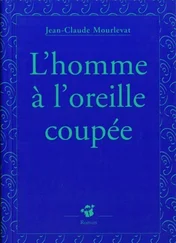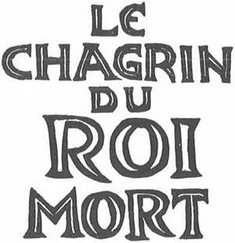Jean-Claude Mourlevat - Winter's End
Здесь есть возможность читать онлайн «Jean-Claude Mourlevat - Winter's End» весь текст электронной книги совершенно бесплатно (целиком полную версию без сокращений). В некоторых случаях можно слушать аудио, скачать через торрент в формате fb2 и присутствует краткое содержание. Год выпуска: 2010, ISBN: 2010, Издательство: Candlewick, Жанр: Старинная литература, на английском языке. Описание произведения, (предисловие) а так же отзывы посетителей доступны на портале библиотеки ЛибКат.
- Название:Winter's End
- Автор:
- Издательство:Candlewick
- Жанр:
- Год:2010
- ISBN:9780763651749
- Рейтинг книги:5 / 5. Голосов: 1
-
Избранное:Добавить в избранное
- Отзывы:
-
Ваша оценка:
- 100
- 1
- 2
- 3
- 4
- 5
Winter's End: краткое содержание, описание и аннотация
Предлагаем к чтению аннотацию, описание, краткое содержание или предисловие (зависит от того, что написал сам автор книги «Winter's End»). Если вы не нашли необходимую информацию о книге — напишите в комментариях, мы постараемся отыскать её.
Winter's End — читать онлайн бесплатно полную книгу (весь текст) целиком
Ниже представлен текст книги, разбитый по страницам. Система сохранения места последней прочитанной страницы, позволяет с удобством читать онлайн бесплатно книгу «Winter's End», без необходимости каждый раз заново искать на чём Вы остановились. Поставьте закладку, и сможете в любой момент перейти на страницу, на которой закончили чтение.
Интервал:
Закладка:
Three grim-looking men push her into the back of a large car. They lock all the doors and drive off in silence.
“Why have you locked the doors?” she asks the man next to her. “Do you think I’m going to jump out or something? Where are we going?”
He doesn’t reply, doesn’t even turn his head. All the way she smells the strong odor of his leather jacket and the cigarettes that the other two are smoking in the front of the car. They drive through the countryside for hours, and then the road runs beside the river to the nameless little town and the gray boarding school building.
About a hundred other girls are waiting in groups of five or six, coats over their arms and small books in their hands. They are all surprisingly quiet. She is led along shabby corridors to the room outside the headmistress’s office, where she has only a few minutes to wait. Then the door opens and a girl comes out, also with a coat over her arm and a book in her hand. She is small, wears thick glasses, and looks even more downcast than the others. This, as Helen will learn later, is Catharina Pancek. She just murmurs, “Your turn to go in,” and then walks away. Helen cautiously goes through the doorway.
“Name?”
This is the first time Helen hears the headmistress’s voice.
“Dormann. My name’s Helen Dormann.”
“Age?”
“Fourteen.”
“Come here.”
Helen goes up to the desk, where a massive woman with short gray hair is sitting. She wears a man’s jacket, and her shoulders are wide and powerful. Helen will soon discover that the girls’ nickname for her is the Tank. The Tank searches some papers, finds a file on Helen, and runs through it. Then she opens a drawer and brings out a leaflet.
“Here, take this.”
The leaflet is well worn; its cover has been mended many times.
“These are the school rules. You must have them with you at all times. There are eighty-one rules. Learn ten a day. If you have to come back here, which I hope you will not, you must know them all by heart. Go into the cloakroom next door, find a coat that fits you, and go out. If there’s anyone sitting outside my door, tell her it’s her turn.”
Helen goes into the room next to the office, which is full of dozens and dozens of coats hanging there like theatrical costumes. Except that all these costumes are identical: heavy wool overcoats with hoods. It’s like a maze. If I ever need to hide, thinks Helen, I’ll know where to go. She chooses a gray coat that looks a little less threadbare than the others, tries it on, and decides that it fits. She takes it off, puts it over her arm, and goes back through the headmistress’s office. The Tank ignores her.
A tall, pale girl is sitting on the bench in the waiting room, bleeding slightly from the nose into a handkerchief stained with red. Helen will learn later that her name is Doris Lemstadt; she will become so ill that she leaves the boarding school. “Your turn!” Helen tells her, and she goes out into the yard where a faint ray of sun falls on the girls standing there motionless, with their coats and their booklets of rules.
“I know — I’ll say duck and drake instead. Is that better?”
Helen came back to the present and smiled at Octavo. “Yes, that’s better. Not as funny, but better.”
The delicious smell of baked potatoes was coming from the kitchen, and Paula called, “How’s your friend Milena? Is she all right? Do you admire her as much as ever?”
“She’s fine,” said Helen, laughing. “And yes, I do! She’s waiting for me in the library. Can I take her something from supper?”
“Of course, and a slice of tart if there’s any left.”
Paula was always cooking: for herself, for Octavo, for people who happened to drop in. It was impossible to go to her house and not eat anything, or come away without something to eat: a helping of bread-and-butter pudding or chocolate cake or just an apple. She had one child, Octavo, but no husband. When Helen asked her about that, she had said she didn’t need one. The village on this hill belonged to the consolers, and it was no place for men unless they were very discreet. Like the man who comes to put wood in the stove, Helen had thought. He must be one of those shadowy men who were allowed to live on the hill. Other men didn’t feel at ease here; they lived in the town and seldom came up to the village.
Most of the consolers were of considerable girth and made sure they stayed that way. How could you give someone a proper hug, how could you comfort people, if your bones were sticking out? Some of Helen’s friends didn’t agree; their consolers were slender and fragile, but they wouldn’t have exchanged them for the world. Catharina Pancek, for instance, said her consoler was like a little mouse scurrying about, and she loved her like that. She wouldn’t have wanted to drown in a mass of soft flesh like Paula’s.
Helen hadn’t chosen Paula for herself. The supervisor who took her up to the hill the first time, three years ago, had stopped outside Number 47 without asking her opinion and said in dry tones, “Her name is Paula. I’ll come back for you in two hours.”
Helen had gone down the three steps and knocked at the door, and Paula had opened it and burst out laughing at the sight of her.
“Oh, what a lost little kitten! Come in and have something to eat. Are you thirsty? How about a mug of hot chocolate? Yes, hot chocolate will warm you up.”
Since that day, Helen had visited Paula only six times, just as often as the rules allowed. About fifteen hours in all, no more. And yet she felt she had known Paula forever. She occupied a huge place in Helen’s heart.
Octavo put his school satchel away, and they set the table for supper. The baked potatoes were so fluffy and so delicious that Helen’s first few mouthfuls almost made her feel unwell.
“Oh, this is so good!”
She spared a fleeting thought for the other girls back at school having to put up with insipid soup. But their turn would come. She might as well forget them for the moment and enjoy the happiness here. Over supper they talked mostly about Octavo, his school, the practical jokes he played there. His teacher must be kept on her toes with a character like Octavo in her class. At eight o’clock he went upstairs to his room and came back down in pajamas to kiss Helen and his mother.
“I like it when you come to see us,” he told Helen, “but not in the evening because then my mommy can’t cuddle me.”
“I’ll come up and see you later,” Paula promised. “Go to bed now. Helen only has half an hour left. I’ve explained to you: it would be very serious for her to be late.”
“Is it true they’d put another girl in a black hole instead of Helen?” asked Octavo.
“Who told you that?”
“Some of the kids at school say so.”
“Well, it’s not true. Off with you now. Go to sleep.”
The little boy slowly climbed the wooden staircase. His eyes were full of anxiety.
There was a large and rather worn-out armchair against the left-hand wall. Paula dropped into it. “Well, my pretty one, what do you have to tell me today? Come over here.”
Helen went to sit at Paula’s feet and put her head in her lap. The plump woman’s two warm hands stroked her head slowly from her forehead to the nape of her neck.
“I don’t have anything to tell you, Paula. Nothing ever happens at the boarding school.”
“Tell me about before you were there, then.”
“I can’t. You know that.”
For a moment they were both silent.
“You talk to me,” Helen went on. “About when you were a little girl. I always like imagining you little. Were you already —”
Читать дальшеИнтервал:
Закладка:
Похожие книги на «Winter's End»
Представляем Вашему вниманию похожие книги на «Winter's End» списком для выбора. Мы отобрали схожую по названию и смыслу литературу в надежде предоставить читателям больше вариантов отыскать новые, интересные, ещё непрочитанные произведения.
Обсуждение, отзывы о книге «Winter's End» и просто собственные мнения читателей. Оставьте ваши комментарии, напишите, что Вы думаете о произведении, его смысле или главных героях. Укажите что конкретно понравилось, а что нет, и почему Вы так считаете.












